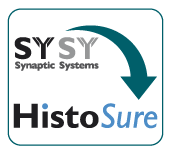Nanostructured lipid carriers based mRNA vaccine leads to a T cell-inflamed tumour microenvironment favourable for improving PD-1/PD-L1 blocking therapy and long-term immunity in a cold tumour model.Fournier C, Mercey-Ressejac M, Derangère V, Al Kadi A, Rageot D, Charrat C, Leroy A, Vollaire J, Josserand V, Escudé M, Escaich S, et al.
EBioMedicine (2025) 112: 105543.
HS-361 003 IHC-P; tested species: mouse
Glutaminase inhibition impairs CD8 T cell activation in STK11-/Lkb1-deficient lung cancer.Best SA, Gubser PM, Sethumadhavan S, Kersbergen A, Negrón Abril YL, Goldford J, Sellers K, Abeysekera W, Garnham AL, McDonald JA, Weeden CE, et al.
Cell metabolism (2022) : .
HS-361 003 IHC-P; tested species: mouse
WEE1 inhibition enhances the antitumor immune response to PD-L1 blockade by the concomitant activation of STING and STAT1 pathways in SCLC.Taniguchi H, Caeser R, Chavan SS, Zhan YA, Chow A, Manoj P, Uddin F, Kitai H, Qu R, Hayatt O, Shah NS, et al.
Cell reports (2022) 397: 110814.
HS-361 003 IHC-P; tested species: mouse
Genomic control of inflammation in experimental atopic dermatitis.Liu Y, Zienkiewicz J, Qiao H, Gibson-Corley KN, Boyd KL, Veach RA, Hawiger J
Scientific reports (2022) 121: 18891.
HS-361 003 IHC-P; tested species: mouse
MEK inhibition overcomes chemoimmunotherapy resistance by inducing CXCL10 in cancer cells.Limagne E, Nuttin L, Thibaudin M, Jacquin E, Aucagne R, Bon M, Revy S, Barnestein R, Ballot E, Truntzer C, Derangère V, et al.
Cancer cell (2022) 402: 136-152.e12.
HS-361 003 IHC-P; tested species: mouse
Follicular helper-T cells restore CD8+-dependent antitumor immunity and anti-PD-L1/PD-1 efficacy.Niogret J, Berger H, Rebe C, Mary R, Ballot E, Truntzer C, Thibaudin M, Derangère V, Hibos C, Hampe L, Rageot D, et al.
Journal for immunotherapy of cancer (2021) 96: .
HS-361 003 IHC-P; tested species: mouse
Loss of Setd4 delays radiation-induced thymic lymphoma in mice.Feng X, Lu H, Yue J, Schneider N, Liu J, Denzin LK, Chan CS, De S, Shen Z
DNA repair (2020) 86: 102754.
HS-361 003 IHC-P; tested species: mouse
Glioma escape signature and clonal development under immune pressure.Maire CL, Mohme M, Bockmayr M, Fita KD, Riecken K, Börnigen D, Alawi M, Failla AV, Kolbe K, Zapf S, Holz M, et al.
The Journal of clinical investigation (2020) : .
HS-361 003 IHC-P; tested species: mouse
Therapeutic Targeting of Stat3 Using Lipopolyplex Nanoparticle-Formulated siRNA in a Syngeneic Orthotopic Mouse Glioma Model.Linder B, Weirauch U, Ewe A, Uhmann A, Seifert V, Mittelbronn M, Harter PN, Aigner A, Kögel D
Cancers (2019) 113: .
HS-361 003 IHC-P; tested species: mouse
Immunosuppressive Myeloid Cells' Blockade in the Glioma Microenvironment Enhances the Efficacy of Immune-Stimulatory Gene Therapy.Kamran N, Kadiyala P, Saxena M, Candolfi M, Li Y, Moreno-Ayala MA, Raja N, Shah D, Lowenstein PR, Castro MG
Molecular therapy : the journal of the American Society of Gene Therapy (2017) 251: 232-248.
HS-361 003 IHC-P
PD-1 Blockade Prevents the Development and Progression of Carcinogen-Induced Oral Premalignant Lesions.Wang J, Xie T, Wang B, William WN, Heymach JV, El-Naggar AK, Myers JN, Caulin C
Cancer prevention research (Philadelphia, Pa.) (2017) 1012: 684-693.
HS-361 003 IHC-P
 Important information
Important information